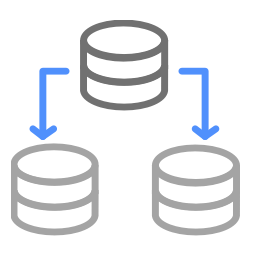Piraeus
An easy-using cloud native datastore for Kubernetes. 100% open source, run anywhere.

Why Piraeus?
Piraeus is a cloud-native storage system that empowers Kubernetes Local Persistent Volumes with dynamic provisioning, resource management, and high-availability. It deploys and scales out automatically within Kubernetes nodes. With Piraeus, Kubernetes workloads can now consume high performance local storage using the same volume APIs that app developers have become accustomed to.
Easy as Plug & Play
With a simple “kubectl apply”, you will have a storage system up and running in a few minutes, which comes with an out-of-box storage pool and corresponding storage-class ready for test!


High Available
Supports 1/2/3 replica numbers for persistent volumes. Piraeus place the replicas intelligently across the nodes to balance the workload.

Linux Native
DRBD, as the core component, has been a part of Linux kernel for 10 years. LVM, as the backend, is also a Linux cornerstone. There is no un-battle-tested new stack in data plane.

Simple
Manages data accessibility and availability without the need to integrate a complex storage API. All the configurations are explicit and human-readable.

High Performance
DRBD-9 has great data replication efficiency. It provides synchronous,semi-synchronous and asynchronous replication schemes, and also supports RDMA for high-speed across-node connection.

Cloud Agnostic
Piraeus can run on all kinds of storage medium: RAID, SAN, NAS or EBS. It unifies storage system across different clouds, both public and private.

Secure
Fully supports OpenSSL encryption and LDAP authentication. Also provides data encryption at DRBD level. Integrates secret-key management with KVDB, AWS-KMS and Azure Key-Vault.


